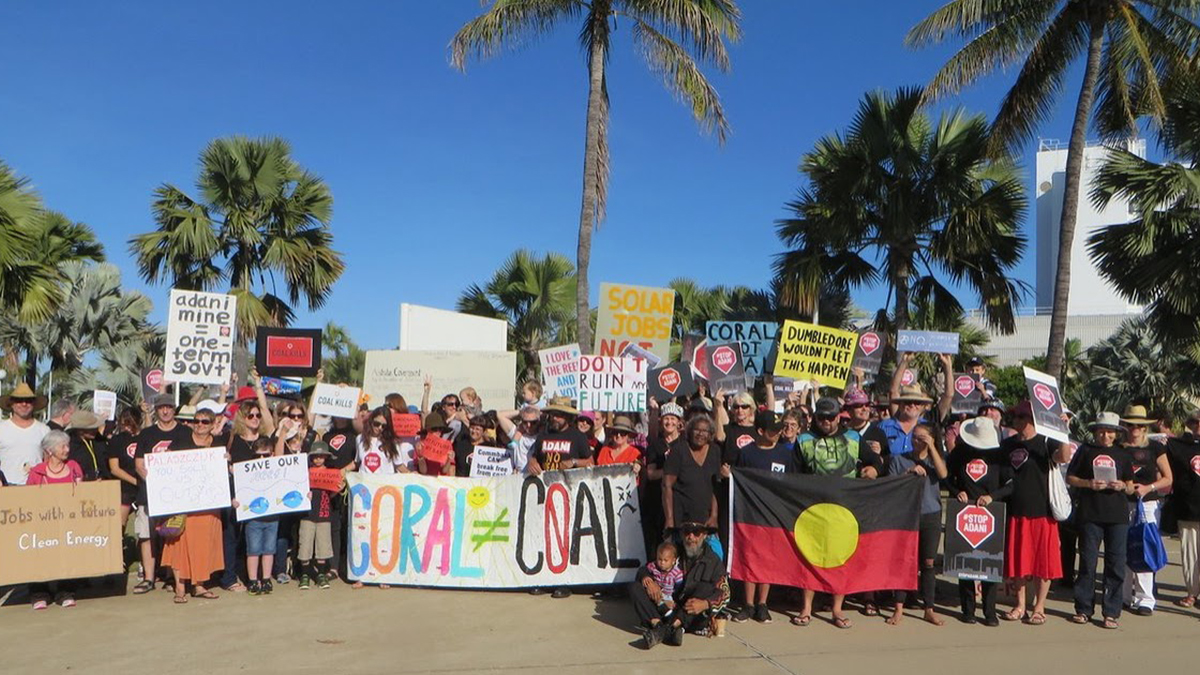Despite the image of the rugged Aussie bushman, Australia has long been one of the most urbanised societies in the world. Even in 1889, the narrator of Banjo Paterson’s Clancy of the Overflow, “sitting in my dingy little office…[in] the dusty, dirty city” was more typical of the average Australian than Clancy and his “vision splendid of the sunlit plains extended”. But, even well into the 20th century, most urban Australian families had their “country cousins”. At least some connection to rural Australia was maintained by family visits and the occasional holiday “at the farm”.
But today, even that experience of life outside the cities has vanished for most Australians. Especially the inner-urban elites who make up the vast majority of Greens voters. The supposedly “environmental” party is as disconnected from the natural environment as Marie Antoinette playing milkmaids at Hameau de la Reine – and as insulated from the consequences of their ideological follies.
Complacent urban elites who take Australia’s prosperity for granted are holding back economic growth in the regional and outback areas upon which national living standards depend, the Business Council of Australia says.
BCA chief executive Jennifer Westacott said…growth opportunities relied on things such as infrastructure investment, but that spending could not occur while “the loudest” urban voices stalled progress in the wider economy, she said.
“You can’t get the regions to grow if the country doesn’t grow,” Ms Westacott said.
Some years back, I was visited by an old school friend, now living in WA. This person skited about WA’s economy (amusing in itself, in retrospect) while sneering at Tasmania’s – all while apparently completely oblivious that he was in our state on a GetUp-funded junket to stop mining development here.
“We’ve got to keep reminding Australians their living standards will rise or fall off the back of us neglecting or promoting regional Australia.”
Australia would be a “much, much poorer country” without the mining, resources and agribusiness sectors, all of which were regionally based, she said…“They want the world to be different … because of some kind of ideological view about the role of those industries. The simple reality is if you take them out of this country, people’s living standards would be very different — and not for the better.”
The fundamental disconnect between the ideological fantasies of the urban greens and the realities of living and working in the regions was nowhere better demonstrated than in this year’s election campaign. The Greens’ anti-mining caravan was roundly rejected by irate Queenslanders – who went on to scrub Labor and the Greens from the Queensland electoral map.
Regional Australia took a “completely different” attitude to big business to inner-city Melbourne and Sydney, she said.
“You don’t see an anti-business agenda, you don’t see the pitting of Australians against one another … and you don’t see cynicism about (our) future and potential.”
One example of urban myopia was opposition to unconventional gas development paired with demands for a low-carbon economy.
“You can’t say ‘We want a lower emissions economy, we want a transition to a lower emissions economy and, by the way, we’re going to stop exploration of a lower emissions fuel source’,” Ms Westacott said.
But Ms Westacott didn’t endorse the argument that a recession would see inner-city attitudes shift.
“The problem at the end of that shake-up is a kid who can’t get a job, a family who’s lost their income, a community that’s down on its luck,” she said.
theaustralian.com.au/business/economics/urban-elites-in-economic-denial-time-to-back-regions-says-bcas-jennifer-westacott
Of course not. The Greens in the inner-cities are the wealthiest voters in Australia. The worst a recession would mean to them is that their incessant overseas holidays might be a tad more expensive. They can always console themselves by sneering at “deplorable” communities decimated by unemployment and attendant social problems like epidemic drug abuse caused by the anti-capitalist manias of the urban elite.

